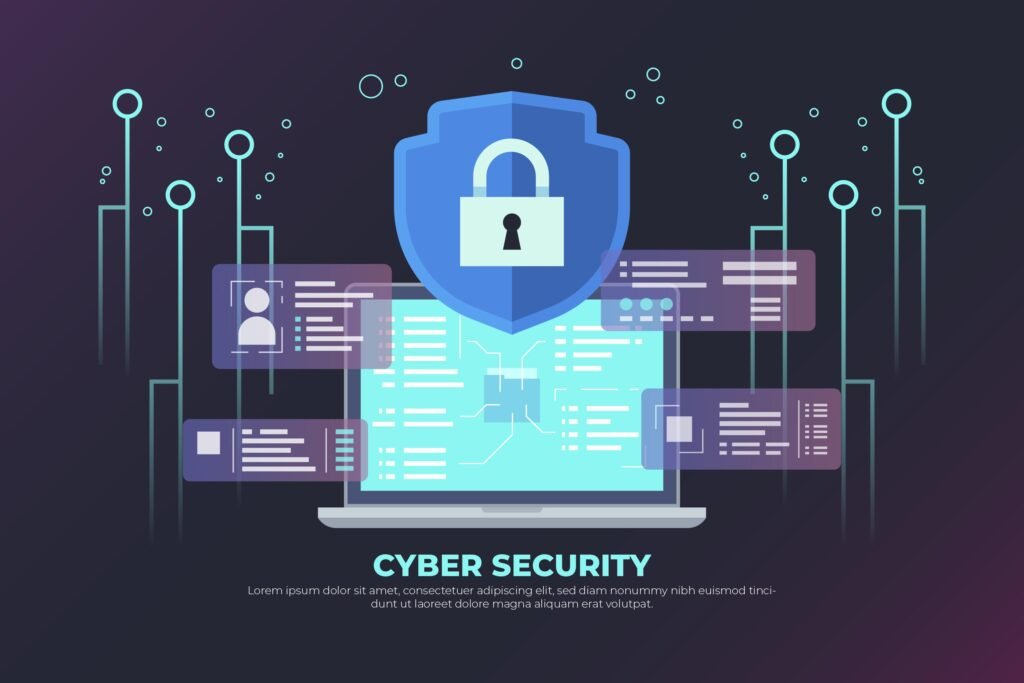Cloud Security Services
Looking for cloud security services? You have landed at the right place.

Enterprise-Grade Cloud Computing Security Solutions
Seccurio also specializes in providing enterprise-grade cloud computing security solutions designed to meet the unique needs and challenges of big organizations. Our approach to cloud security assessment, implementation, and ongoing management makes sure your cloud environments remain secure and compliant.
Cloud Security Confidence Assessment
Gain peace of mind with our Cloud Security Confidence Assessment. Our experts will evaluate your existing cloud security posture, identify vulnerabilities and risks, and provide actionable recommendations to strengthen your defenses.
Establish Your Secure Cloud Environments with Outcomes-Focused Solutions
Our outcomes-focused solutions help you to establish secure cloud environments that support your business goals and objectives. We prioritize outcomes that matter most to your organization, delivering tangible improvements in cloud security.

Top 5 Cloud Security Threats and How to Confront Them
1. Data Breaches: This happens when someone unauthorized gets access to sensitive information stored in the cloud. To prevent it, use strong encryption to protect data, keep an eye on who has access, and watch out for any suspicious activity.
2. Insider Threats: Sometimes, people within an organization might accidentally or deliberately do something harmful. To prevent this, control who has access to what, train employees on security, and keep an eye on what people are doing.
3. Misconfiguration: This occurs when cloud services are set up incorrectly, making them vulnerable to attacks. To avoid this, use tools to manage configurations automatically, regularly check settings to make sure they’re secure, and train IT staff on how to set things up properly.
4. Account Hijacking: Hackers might try to get into user accounts by tricking people or guessing passwords. To stop this, use extra security measures like requiring users to use more than just a password to log in, and keep an eye out for any suspicious logins.
5. Distributed Denial of Service (DDoS) Attacks: These attacks flood cloud resources with traffic, causing services to slow down or stop working. To defend against them, use services that protect against DDoS attacks, set up filters to block malicious traffic, and make sure you have enough bandwidth to handle attacks.
What is Cloud Security?
Cloud security is a set of measures and practices designed to protect cloud-based data, applications, and infrastructure from unauthorized access, data breaches, and other cyber threats. It includes a range of technologies, processes, and policies aimed to make sure the confidentiality, integrity, and availability of cloud resources.
What is Involved in Cloud Security?
Cloud security involves various components and practices focused on securing different aspects of cloud computing environments. These may include host security, data security, identity and access management, encryption, firewall protection, intrusion detection and prevention, vulnerability management, and more.


What is Host Security?
Host security focuses on securing the individual servers and virtual machines within a cloud environment. This includes implementing measures such as operating system hardening, patch management, antivirus software, and intrusion detection systems to protect against unauthorized access and malware attacks.
What is Data Security?
Data security involves protecting sensitive information stored and processed in the cloud. This includes encrypting data both at rest and in transit, implementing access controls and authentication mechanisms, and monitoring data usage and access patterns to detect suspicious activities.
Identifying Cloud Security Risks
Cloud security risks can arise from various sources, such as inadequate access controls, misconfigured services, data breaches, insider threats, and compliance violations. Identifying and controlling these risks requires a proactive approach to security, detailed risk assessments, and continuous monitoring of cloud environments.

Why is Cloud Security Important?
- Improved Data Security: Protects sensitive data from unauthorized access, theft, and manipulation.
- Improved Business Continuity: It makes sure the continuous availability and resilience of cloud-based services and applications.
- Scalability and Flexibility: This enables organizations to scale their cloud infrastructure securely and adapt to changing business requirements.
- More Cost-Effective: Helps reduce the risk of costly data breaches, compliance violations, and downtime.
- Centralized Management: Provides centralized visibility and control over cloud security policies, configurations, and activities.
6. Compliance: Helps organizations meet regulatory and compliance requirements related to data protection and privacy in the cloud.
How Does Cloud Security Work?
Cloud security works by implementing a combination of technical controls, security best practices, and compliance measures to protect cloud-based assets and environments from security threats. Key components of cloud security include:
Identity and Access Management (IAM): Controls access to cloud resources based on user identities and roles.
Data Encryption: Encrypts sensitive data to prevent unauthorized access and ensure confidentiality.
Firewall: Filters network traffic to block unauthorized access and protect against cyber threats.
Intrusion Detection and Prevention (IDP): Monitors network and system activities for signs of suspicious behavior and blocks or alerts on potential threats.
Vulnerability Management: Identifies and patches security vulnerabilities in cloud infrastructure and applications to reduce the risk of exploitation.


Virtual Private Network (VPN): Establishes secure connections between users and cloud resources to protect data in transit.
Security Information and Event Management (SIEM): Collects and analyzes security event data from cloud environments to detect and respond to security incidents.
Cloud Access Security Broker (CASB): Enforces security policies and controls for cloud-based applications and services.
Cloud Security Posture Management (CSPM): Monitors and assesses the security posture of cloud environments to identify and remediate misconfigurations and compliance violations.
By utilizing these components and adopting a proactive approach to security, you can protect your cloud assets. You can maintain the integrity and availability of your cloud-based services and data.
Shift your focus from worrying about cloud security to growing your business with our cloud security solutions. Contact us today to learn more about how we can help you establish secure, resilient, and compliant cloud environments that support your business objectives and success.
